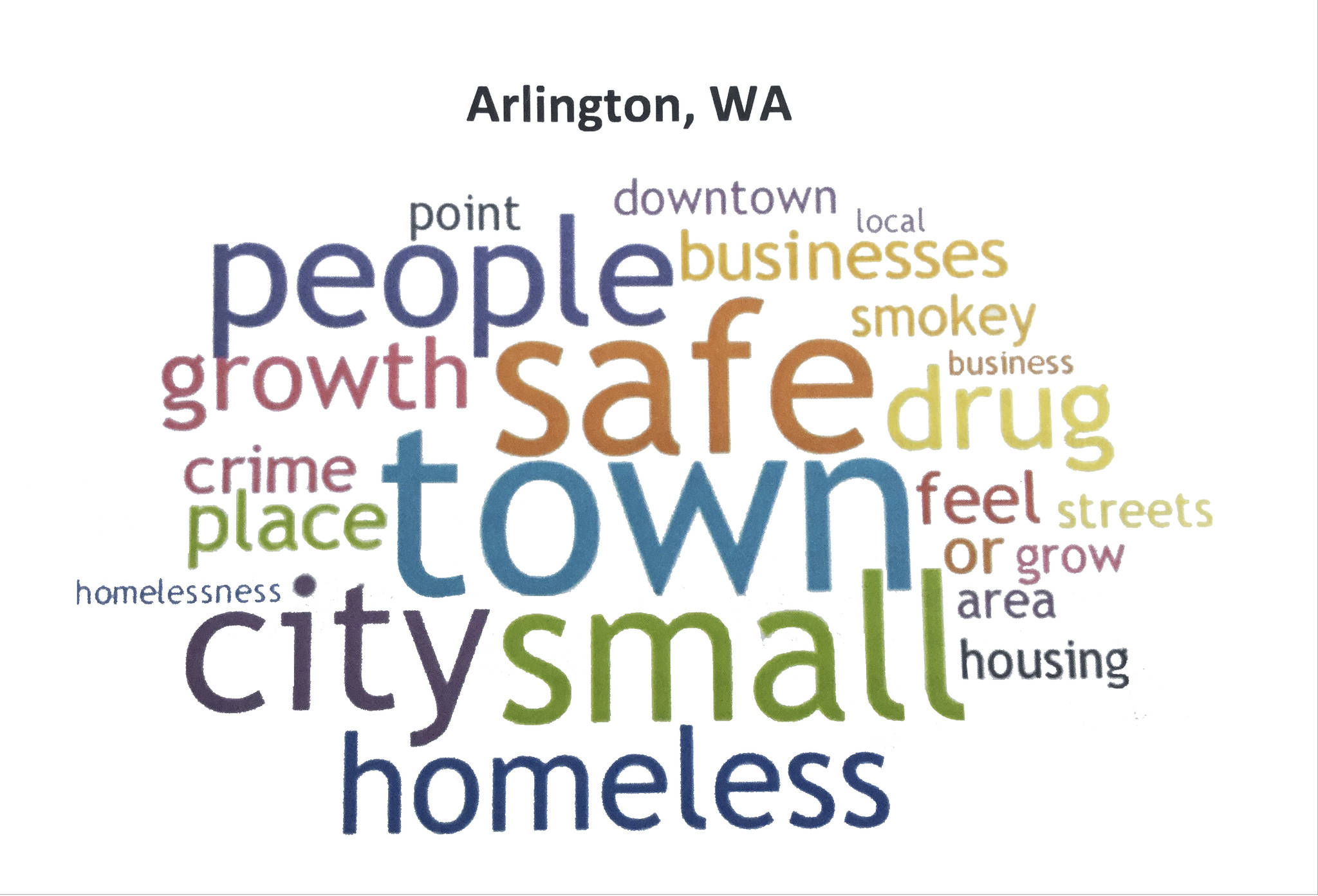ARLINGTON – If Arlington hopes to break the cycle of homelessness, addiction and mental illness, it’s going to take partners, shared knowledge of available aid-ready resources, and places close by within reach of the people who need the services the most.
A new report commissioned by the city identified 21 programs within Arlington and 30 outside the area offering services ranging from basic needs such as food, transportation and housing, to detox and addiction treatment that is sorely lacking in the north county region.
The 102-page report conducted by Community JF Consulting is the result of nine months of research, interviews with local leaders and various stakeholder groups, and an online community survey.
The study looked at identifying service gaps, building stronger partnerships, and ways to better address the street-level challenges of serving Arlington’s vulnerable people living with addiction, mental illness and homelessness.
Mayor Barb Tolbert summed up what could and should happen going forward:
“I’m hoping that we can take the information and absorb it, and understand what we have here, where the gaps are and where the resources are regionally, and sort of formulate a broader plan rather than one thing at a time,” she said.
Here are some highlights from the report and a related online community survey:
* A city health and human services questionnaire found that Arlington residents have a high level of awareness (83 percent strongly agree or agree) and concern (90 percent strongly agree or agree) for the problems of homelessness, addiction and mental illness.
* The 2017 point in time head count of the homeless counted 515 homeless individuals, 75 of whom slept in Arlington or Darrington. Adding Marysville, Granite Falls and Lake Stevens together with Arlington, there were 205 individuals counted, more than in the city of Everett.
* In all, 21 programs address homelessness, mental illness and addiction in Arlington; for example, the Arlington Family Support Center, Smokey Point Behavioral Hospital, Stillaguamish Tribe, Arlington Drug Awareness Coalition and several medical, housing and social services entities. Another 30 serve those same vulnerable populations but are located outside the city.
* The most visible population that resists services consists of 18 to 40-year-old white men who are addicted to heroin and living in encampments, panhandling and engaged in other nuisance crimes.
* Communities don’t treat “people without homes” as their neighbors, and want them removed from their area. Arlington is not immune to this way of thinking.
City Administrative Services Director Heather Logan compared the study to creating a 211 just for Arlington, referring to the number that provides health and human services assistance and resources countywide. It’s all about knowing what you have to work with, and getting the information into the hands of people who need it.
If all goes as planned, one of the biggest next steps in the new year would be putting an embedded social worker out on Arlington/Smokey Point – and Marysville-area – streets to work alongside police officers.
The worker would be armed with a list of services and contact information, and access to the city’s flexible fund account to take care of emergency short-term needs to help individuals move past little barriers when they are ready for help, such as an identification card, hygiene products or a bus ticket.
The “flex fund” is set up to accept donations from residents and the business community. The model is similar to what is in use as part of the Everett Streets Initiative.
Councilwoman Jan Schuette said access to transportation is a key concern of hers especially between downtown Arlington and Smokey Point. She bought 100 bus tickets to give to the police chief to help the homeless and others get to vital services.
Logan said the study emphasized the importance of services being close to the people who need them, even within walking distance if possible.
“If it isn’t easy to get to, they won’t go,” she said. “Even Marysville may be too far away,” much less Everett.
A recommendation in the study suggested the need for a suitably located one-stop drop-in center.
Councilman Mike Hopson liked the idea for a place where someone in need could have access to services, shelter, food and a shower. He suggested a location built near the Smokey Point Behavioral Hospital might reach the largest vulnerable population, but would need partners such as the city of Marysville and others to work.
Survey responses ran the full spectrum, from “throw the bums out” remarks to compassionate believers in second chances:
“If one overdoses on heroin, or any drug don’t save their life, don’t give them that heroin reversal drug.”
The drug addicted homeless people are nothing but a big problem in Arlington. They got themselves in that situation and it’s up to them to get themselves out; often times they don’t want help.”
“I appreciated that there are steps being made to deal with these issues in the community. I hope the right thing will come from this.”
“These people are your parents, your brothers and sisters, aunts, uncles and cousins. They need help. Whether it be mental health or addiction, they and struggling and to deny them the help they need is as good as giving them a prolonged death sense.”
“A community was able to come together to meet the needs following the tragedy of Oso should be able to come together to meet the needs of the poor and homeless. It is well past time to develop strong programs.



